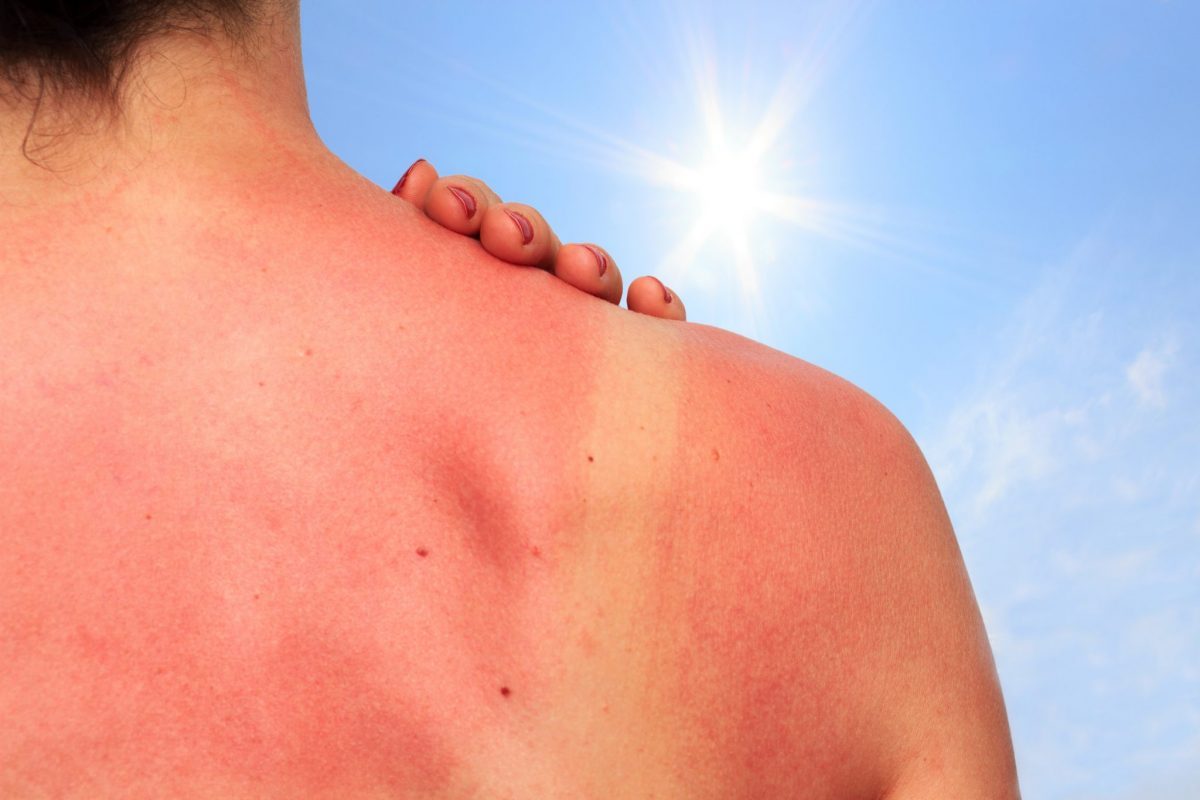Treating a Sunburn

Did you catch a little too much sun? Maybe you nodded off, lost track of time, or were just tempted for the sun to work its ‘magic’ on your skin.
A religious devotion to your SPF will not make you immune to the sun’s damaging ultraviolet rays. But without proper protection, the sun can do quite a number on your skin. Most sunburns may appear temporary but can cause long-term skin damage by increasing the risk of sun spots, wrinkles, and worse, skin cancers.
At Physicians Premier, your Cibolo emergency room, it is quite common to see sunburn cases during the summer months. Normally, a bad sunburn doesn’t warrant a trip to the emergency room, but severe sunburns require medical attention. A person can be in pain from too much sun exposure and become dehydrated.
It can take a couple of hours for the full damage to manifest. To help heal and soothe a sunburn, it is essential to start treating it at the first sign.
Here’s how you treat a sunburn if you get one.
1. Hydrate
When you get a sunburn, the sun’s ultraviolet rays causes the skin to become inflamed. It’s important to repair the skin’s barrier by hydrating the skin as soon as possible. Do it from the outside-in. Slather on a skin-soothing moisturizer, particularly one which contains aloe. This will help calm angry, irritated skin.
Hydrating from the inside can also help. Compensate by drinking plenty of water.
2. Apply a damp, cold towel on your skin
A sunburn draws fluids away from the body. Take some of the heat from your skin by putting a damp towel on your skin for at least 10 minutes a few times a day, or by taking a cool shower. Afterwards, apply a soothing moisturizer to help trap moisture into your skin.
3. Protect blisters and decrease swelling
Taking an over-the-counter anti-inflammatory medication can help lessen pain, redness, and swelling. If you have blisters, do not peel or rupture them. Doing so will make your skin prone to infections. You can also ask your doctor if it’s advisable for you to apply prescription steroid creams to speed up the healing process.
Does your sunburn require medical attention?
How do you know when your sunburn is serious enough to warrant a trip to the doctor? If your condition is accompanied by any of these symptoms, seek immediate medical care:
- Severe pain
- Fever
- Dehydration
- Vision problems
- Blisters that have become infected
- Red streaks, swelling, or pus
Sun poisoning is an extreme case of sunburn, and this happens when ultraviolet radiation inflames your skin. If you experience symptoms like chills, fever, headache, nausea, fainting, dehydration, or confusion, go to your local Cibolo emergency room immediately.


